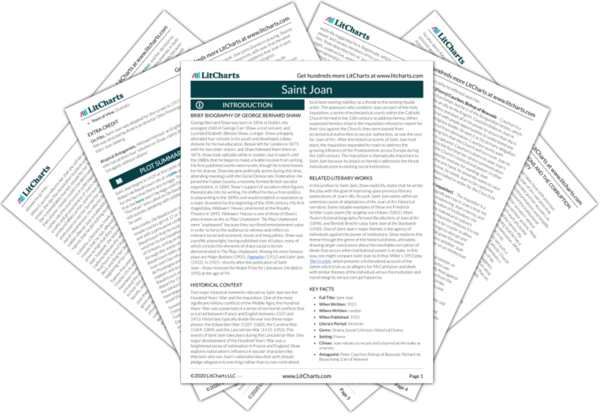“The man Hus” refers to Jan Hus, a 14th-century Czech theologian and reformer whose ideas would influence other reformers down the line, notably Martin Luther, a major figure in the 16th-century Protestant Reformation. “A man named WcLeef” refers to John Wycliff, another important predecessor to the Protestant Reformation. Wycliff was notably critical of the privileged status of the clergy. Cauchon initially presents his case against Joan as an exclusively spiritual crusade, but by citing dissenters of the clergy like Hus and Wycliff, he shows that his condemnation of Joan is also political: like Warwick, he sees Joan as a threat to his current position of power.
